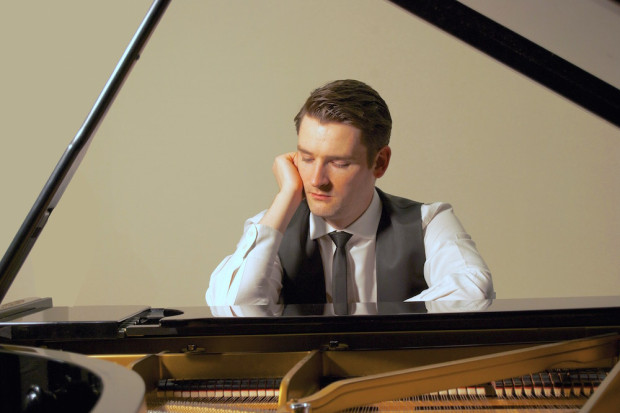Classic Ephemera
There is something advertised on Classic FM that you can buy, called ‘Classic Ephemera’. I didn’t listen for long enough (having arrived at my destination) to tell you what it might be; a book, a CD – I don’t know, but I caught the flavour of the idea quickly enough. The great composers’ lives were full of entertaining episodes, it seems, and a non-thorough knowledge of these will enhance your listening experience no end.
This is part of a light, fluffy halo that surrounds ‘classical’ music in media settings; there seem to be certain dos and don’ts where it is concerned. The biggest ‘don’t’ is ‘don’t have any conflict associated with it’. One of the ‘dos’ is ‘do place products associated with comfort, snobbery and success beside it’. Politically this is a noxious combination. It says classical music is for the ‘I’m all right Jack (keep your hands off my stack)’ sector of society. This might sound like a rant, but consider RTÉ lyric fm’s Drivetime Classics, brought to you by none other than BMW. Or the recent RTÉ television show The Symphony Sessions sponsored by Penfolds Wines. Meanwhile, the fluffy, non-confrontational aspect is embodied by the relentlessly cheery and largely witless presentation that seems to go with classical radio, and often television.
Concerning the general case of music and politics, is it in the nature of music itself to be so disengaged from anything resembling intellectual content? Writing, visual arts, films, and so on, have all rubbed up against the political, ideological or philosophical systems that surrounded them. Classical music, on the whole, has tended to either actively support or else silently assent to every form of political/ideological control. This is in spite of the fact that many individual composers have positioned themselves against the regime or system of the day. (Folk music, in complete contrast, and especially in Ireland, was able to express freely every sort of urge to resist.) There are historical reasons for this; firstly classical music was reliant on patronage, either of court or church. Later on, the support of the middle classes came strongly into play. At that stage classical music – rather conveniently – started to exalt the superiority of ‘pure music’: music without a text. Once music is free of text it is silently backing whatever depravity the funder is up to.
There are some very real examples of this in recent times. Ceaucescu in Romania kept contemporary composers in a very comfortable position: he exalted the ‘new’ in all art, but obviously brooked no opposition. As recently as the early 1990s you could go looking in a music shop in Bucharest for scores of Brahms and no-one there knew what you were asking for, yet scores from the Romanian composers union were sitting there, published and distributed by the state. But of course, at the same time, writers were hounded by the Securitate.
What composers think
If only this was all just a problem in history: but the composer of today and tomorrow inherits the problem from the composer of the past. Whether one agrees or disagrees with various prevailing truisms, one is without a position, and therefore assenting, if one is writing instrumental music all the time. For composers, there is the uncomfortable societal assumption that you are naturally on the side of Pangloss. It is somewhat a shame that the public never gets to find out what composers actually think about anything, while other types of artist and indeed songwriters are out there expressing discontent with the evils of the political status quo. Even despite clear public examples of Irish composers taking a stand of one kind or another (for example, Raymond Deane’s huge involvement in the Ireland Palestine Solidarity Campaign, or Fergus Johnston’s opera Bitter Fruit) you don’t, as a rule, find them talking on RTÉ lyric fm, or Rattlebag, or The Late Late Show. This is because contemporary music is (a) generally unknown and (b) it is seen as part of ‘classical music’ which, as everyone knows, is ‘establishment’. Although I mentioned the tradition of the folk ballad, nowadays more and more non-classical music is politically neutral, holding a mirror up to its consumer. Rock music still manages to trade on its past reputation for being anti-establishment, although by now that is mostly just a fading and threadbare backdrop to a naked thirst for celebrity and riches. But so long as the songs have words there is the constant potential for dissent.
But is there any political dimension to those musical forms that have no text? There is the immediate problem that any sounds can be married, shotgun-style, to any image or message; advertising gives countless examples of this. Yet there is a quasi-political statement in the creation of complex works that do not bow down to commercial pressures and are not designed to be ‘saleable’ per se. It is politics with a pretty small ‘p’, and it rests on ideals that are nowadays so unfashionable as to attract almost universal ridicule, but the artist is expressing and inventing without any societal constraints whatever. That itself is important as an act of freedom.
It can be (and is) argued that a society’s health is partly measured by the freedom that artists have in it. Then there is the whole ‘system v. individual’ equation where a society’s state of evolution can be discussed in terms of how much time its individual members enjoy for reflection, and whether or not the individuals are equipped (educated) to deal with reflection. I would certainly argue that a truly affluent society is one where most or all of the members have lots of free time, and know what to do with it. Artists, in this scenario, are among those providing the content for that reflection.
The Symphony Sessions
However, to return to where this started, it does not help the reflection process if classical music is forced to operate in a totally fluffy zone. At the moment, Irish media have no public space for the concept of serious classical music. Media-wise, all classical music is purely and simply relaxing entertainment for the masses, and too bad if you think otherwise. Oddly, there is space for seriousness in folk and rock: so much for the phrase ‘serious music’.
An example of this was The Symphony Sessions, a TV series aired on RTÉ during August and September. Although the series deserves praise just for existing (i.e. it is amazing to see an orchestra on a terrestrial channel at all these days), the content, even though words formed part of it, was utterly anodyne. The norm nowadays for documentaries on all other subjects is to find some dramatic point of conflict and then resolve it. Here we were treated to blandly harmonious co-existence, with large servings of self-praise. Not gripping television, alas. There were, though, two very rare and significant plus points to the show: whole pieces were performed without interruption, and, in addition, a new piece was commissioned for the series. That, I would bet, is not happening anywhere else in the television world right now.
The new piece was Donnacha Dennehy’s Elastic Harmonic. It was a surprisingly restful and colourful piece, more telly-friendly than most of his work to date. Thanks to his usual subtle treatment of harmonic and surface rhythm, the quality was high. Stylistically it seemed to refer to Reich’s sound-world along the way, though treating those strict boundaries more, er, elastically. At the end of the programme there was a fleeting hint that the relationship between conductor Robert Houlihan and the composer included some artistic conflict, yet this potential seam of interest remained virginally untouched throughout.
Elaine Agnew’s The Sixth of January
On Wednesday 28th September, the Irish Chamber Orchestra reached Letterkenny in their extensive tour of the west of Ireland. The programme included two items from Tchaikovsky, one from Boccherini and one from Elaine Agnew.
There was some talking before each piece – Elaine Agnew introduced the ideas behind her new work, The Sixth of January, and first violinist Katherine Hunka spoke before the Boccherini. Boccherini exemplifies another part of the ‘classic ephemera’ problem: many composers from the venerated past really did write just for entertainment. The piece was a series of illustrations of street life in Madrid, with bells, guitars strumming, and sentimental melodies. I only mention it inasmuch as it formed part of the context in which the Agnew was framed – i.e. unfavourably, if serious artistic thought was the intention. However, the ideas behind the Agnew were interesting explorations of a strange weather event in 1839, when a devastating storm hit Ireland and surrounds. She said that this theme would probably go on to inform later pieces, and would make an interesting opera.
When the piece was performed, it did, as she said, leave a sense of hanging tension and a desire to hear the next phase, the storm itself. The piece was very strong in the beginning of the first movement, ‘Epiphany’, and the second movement, ‘The Big Wind’, while much of the first movement explored variations on the first section that grew a little static harmonically, though were well worked out in other respects. This was a formally adventurous piece in a neo-modal, almost post-modern style that happened to sit extremely well with ICO’s fine technique, if not their middlebrow programming.
If a quick reason to rebut the malign tendency that is ‘classic ephemera’ is needed, it is surely that each of the two words means the other’s opposite, when you think about it.
The Symphony Sessions will be broadcast again on RTÉ over the Christmas period.
Published on 1 November 2005
John McLachlan is a composer and member of Aosdána. www.johnmclachlan.org














